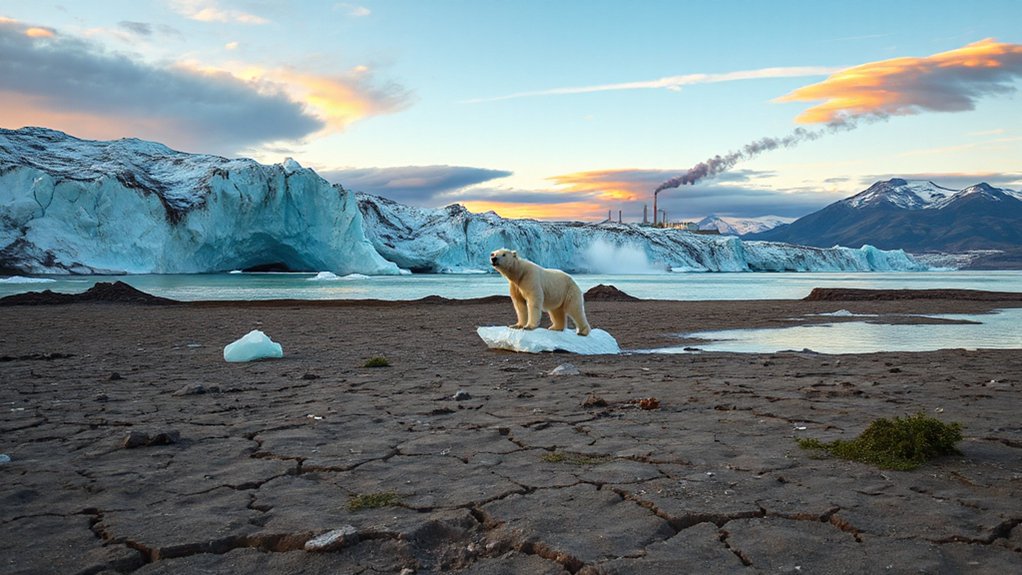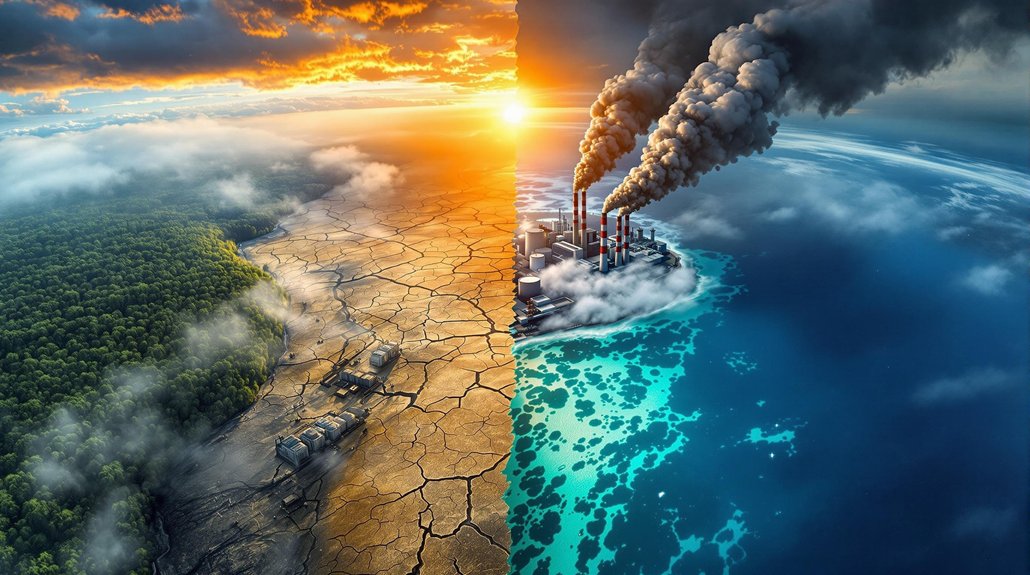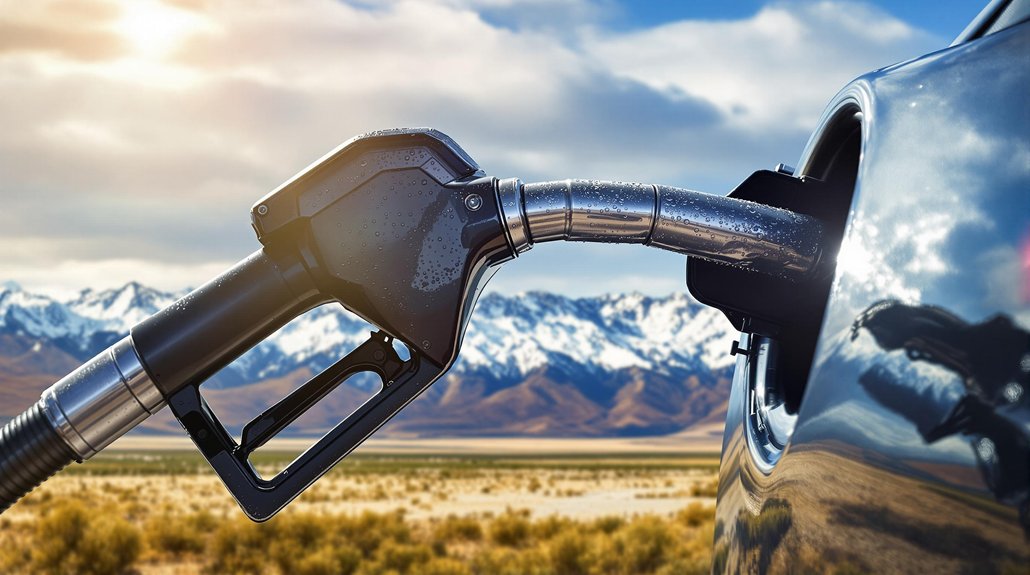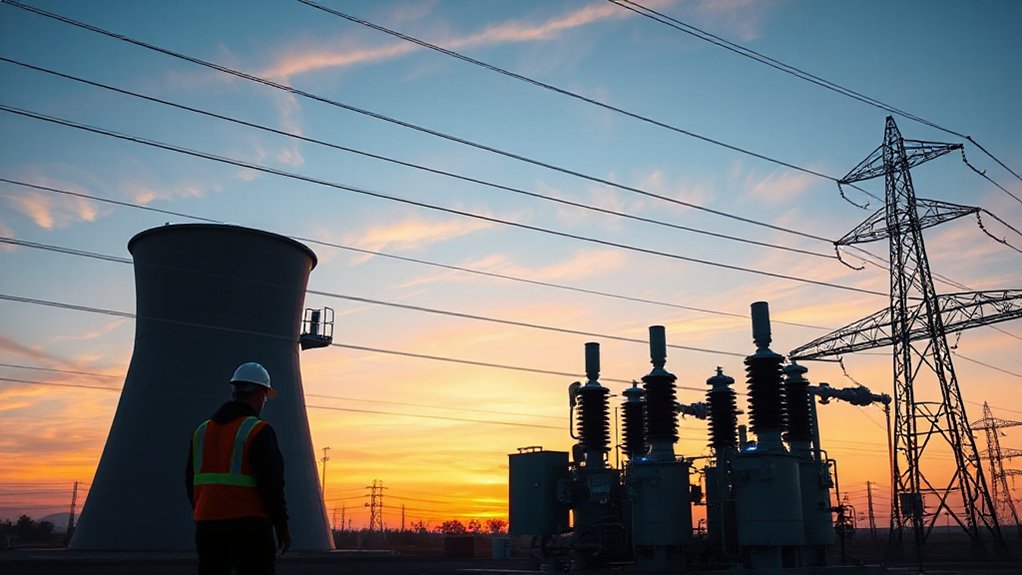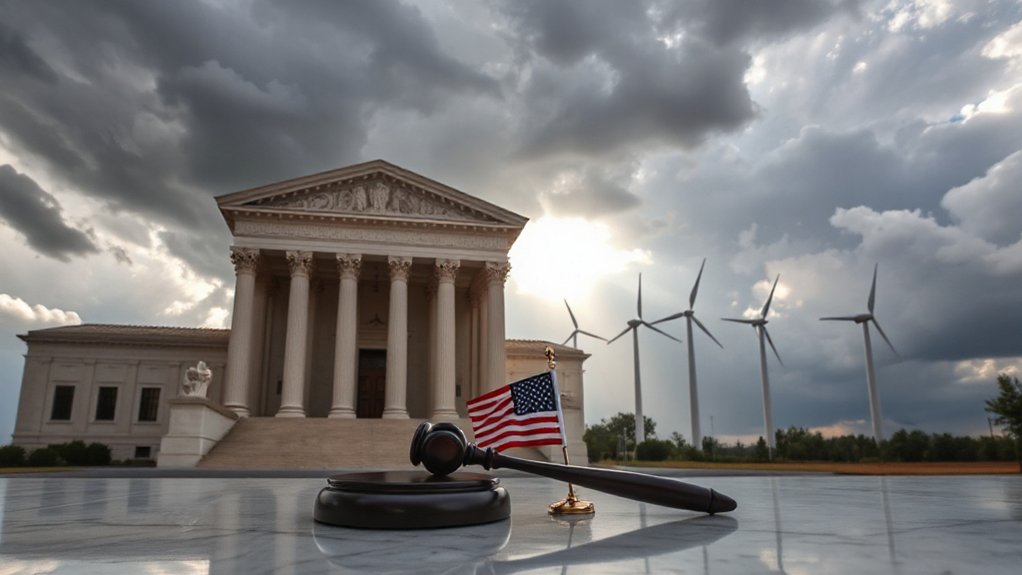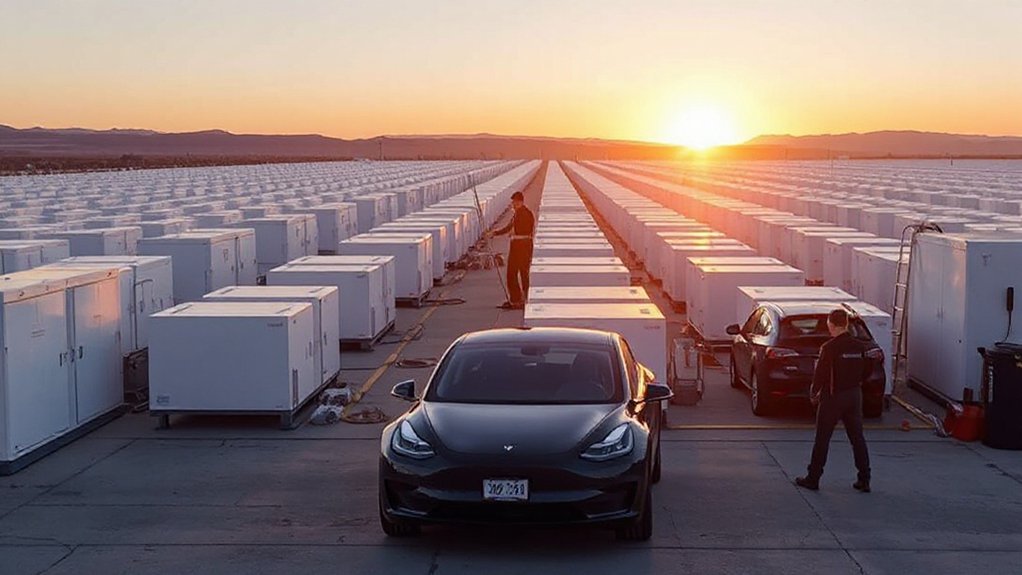Arctic’s Paradox
How can the world’s most pristine wilderness be both Earth’s climate alarm and its next resource bonanza? The Arctic embodies a cruel twist of fate. It’s warming twice as fast as the rest of the planet while simultaneously housing vast untapped oil and gas reserves. Talk about mixed signals.
The science is clear and frankly, a bit terrifying. As Arctic ice melts, less sunlight gets reflected back to space. More heat gets absorbed. More ice melts. It’s a vicious cycle that scientists call a feedback loop.
Meanwhile, ancient permafrost is thawing, belching methane into the atmosphere like a college freshman after beer night. Not good.
Here’s where things get weird. While the Arctic burns, Americans sometimes freeze. Those disrupted polar weather patterns send frigid air southward in winter. Remember those “polar vortex” events? That’s the Arctic paradox hitting your heating bill. The warming Arctic influences polar vortex stability, causing these unexpected cold air outbreaks in mid-latitude regions.
The icy north also acts like Earth’s pollution magnet. Contaminants from industrial centers ride air currents northward, settling in Arctic ecosystems. Mercury levels in some northern communities are alarmingly high. Temperature increases of 0.5 to 0.8 degrees per decade have accelerated mercury’s accumulation in Arctic food webs. The people who contributed least to climate change suffer most from its effects. Fair? Hardly.
Meanwhile, nations circle like hungry wolves. Russia. America. Canada. China. Everyone wants a piece of the thawing pie. New shipping routes! Untapped resources! Dollar signs in politicians’ eyes!
Indigenous communities watch their homes literally melt away. Traditional hunting becomes impossible. Cultural practices dating back thousands of years disappear. Their knowledge could guide adaptation efforts, but who’s listening? The loss of traditional hunting grounds threatens both their food security and cultural heritage that has sustained these communities for generations.
The ultimate irony? The very fossil fuels being uncovered could accelerate the disaster already unfolding. We need to leave carbon in the ground to fight climate change, yet we’re racing to extract more.
References
- https://www.coleurope.eu/sites/default/files/research-paper/edp-3-2018_debotselier-lopez-schunz_0.pdf
- https://climate.sustainability-directory.com/term/arctic-climate-change/
- https://www.frontiersin.org/journals/earth-science/articles/10.3389/feart.2020.00093/full
- https://blog.oup.com/2021/11/the-arctic-paradox-why-the-arctic-is-caught-in-the-conflicting-pressures-of-global-climate-change/
- https://agupubs.onlinelibrary.wiley.com/doi/full/10.1029/2004GL021752


